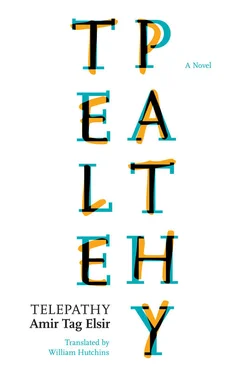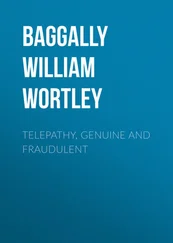I wasn’t alarmed but didn’t really feel calm either. I experienced a moment of extreme neutrality that I’ll attempt to maintain for as long as possible while I search for suitable answers to the striking eeriness I experienced for more than two hours while I listened to Nishan Hamza in the home of Malikat al-Dar. I was trying hard to comprehend all of this but not succeeding.
Nishan Hamza Nishan in the novel Hunger’s Hopes was the same as the real Nishan Hamza Nishan. His family had emigrated from N’Djamena in Chad during the rule of the dictator François Tombalbaye at the start of the 1960s. His father had settled in the Sudanese capital, where he had worked as a guard for a private residential development. He had made special efforts to find his son work as a messenger in an elementary school when Nishan was ten, and his son had continued working in this position till he was thirty, when, at the prodding of the young pupils, he embraced education. He began to study and finished all his school exams through to the secondary level in two years. Then he worked hard to enter university and study law, only to be blindsided by the symptoms of seasonal schizophrenia. That had obviously impeded his progress.
During his first bout of illness, Nishan had fallen in love with a nurse named Yaqutah who actually served as a nurse in the government psychiatric hospital until last year. She had done her best to care for him during his ordeal. But she had suddenly disappeared, changed her name to Ranim, and traveled to work in Libya once it was liberated from Gaddafi’s rule, after she found a position there.
The aristocratic lady, who vaunted her superiority, without or without cause, was Su‘ad Mu‘tasim, the owner of the building where Nishan’s father worked as a security guard until he passed. She had died as a result of a blood clot in the brain last year. The ambitious soldier, who had attempted to overthrow the government without even the attributes that would have qualified him to lead a fringe football team and who was executed after the attempted coup along with his comrades, was a dead ringer for Asil Muqado, a member of Nishan’s tribe, and had embarked on the same adventure. He came close to seizing power but wasn’t executed, because he fled at a decisive, climactic moment. Now he was living in his ancestral homeland, Chad, where he bragged about being an adventurer who had almost succeeded.
Nishan’s life story was very close to events in Hunger’s Hopes — even the page where I had suspended any grounding in reality. That was the folded page Nishan kept reading and annotating at the bottom when he sat beside me in the car. It was page 120, when the hero again succumbs to seasonal schizophrenia.
Some of the names were real — Nishan, of course, and the nurse Yaqutah, although the end of her story was different. In the text she retained her name to the end, cared for the hero till his last moments, and wept for him when he passed. In real life, she changed her name to Ranim and traveled abroad in search of a better life. Asil, similarly, fled instead of being executed. In my novel, Su‘ad Mu‘tasim did not die of a blood clot; she died halfway through my work of liver failure. The work on the whole, however, consisted of true-to-life pages that described the life of a poor, desperate, marginalized man, who had communicated his story to me in some fashion and had even made me fiddle with the details of some passages, while I retained his name, life story, and present circumstances. Because the text was actually published, while reality was stuck at the folded page, neither Nishan nor I could say definitively whether his end and the novel’s would converge.
But how had all this happened?
“How has this happened?” I asked him with icy limbs, a pounding heart, and a mind that was totally blank.
He didn’t know, and no one else could know, I believed. Something strange had happened. I had simply to accept that it had happened and strive to find some explanation for it if I could. I had to forget I had once visited Kuala Lumpur with its mischievous vigor and returned with Eastern spices that were going to produce a novel. I was obliged to work to create for this man a better destiny than the one I granted him in the text. Success in this effort would not be entirely in my hands or within my powers, but I had to attempt it. I felt a warm sympathy for the man and thought of a number of steps to take. I asked him, “Did you know about me before Hunger’s Hopes ? Had you read any of my other works?”
“Because of my circumstances, I don’t read literature or anything else on a regular basis. I’m a poor man whose education came late in life — but I definitely knew about you. I had read some isolated chapters from your novels in the newspapers. I also read some of your interviews and essays, which I didn’t understand too well.”
“And Hunger’s Hopes ? How did you happen to read it, since you don’t read many books?”
“Someone I know who lives in the district brought me a copy when he found my name and story in it. He was enraged when he handed me the book, because he thought I knew you personally and had narrated my story to you to write.”
“Was he one of the characters who appear in the novel?” I asked, gripped by anxious fear that I might have written about some ordinary person and distorted his life enough that he would wish to destroy me, especially since he got hold of a copy of the novel and actually read it, only to discover his neighbor and his neighbor’s story inside it. What I found most unusual was that Nishan was acting normally and hadn’t attacked me or accused me of anything.
“No, he’s not in the novel,” Nishan replied as he silenced his old cell phone, which had begun to ring persistently.
I sighed with relief. I was spared that then.
Another question: “The Chadian man who purchased your sister Mabruka when she was a child and disappeared with her to unknown reaches of Africa — was he real? And your sister, herself — do you have a sister named Mabruka?”
“No, I don’t have a sister or a brother. I was an only child. Now I’m the only one left, as you know.”
Questions began to multiply in my mind and raced toward my tongue. What about the truck driver who bound Nishan with ropes when he was delirious? Or the perfume dealer Nashshar, who loaned him money from time to time? How about the exploding dolls — did he actually throw them at elegant men and beautiful girls in the streets? Did he take his treatment seriously? Did he go to prison, as happened in a passage in the novel, for example? But these questions were quashed when Nishan suddenly changed. I saw his eyes redden, his lips quiver, his hands gesture convulsively in the air, and something like thick slobber drool from his mouth. He cried out in response to an imaginary voice calling him: “Wait for me, Rabi! Wait for me, I beg you!” I thought he might shatter one of the glasses of orange juice over my head or smash one of the velvet chairs. He might escape into the interior rooms and strangle Malikat al-Dar, Dhu al-Nun, and his mother, Fatima.
I couldn’t predict what a lunatic might do in his delirium, because I had observed people like him in moments of sudden frenzy. I’ll never forget a youth I saw one day in my neighborhood — he had throttled his male organ with a circular piece of rusty metal, and it exploded in front of me.
I stood up quickly, feeling alarmed and guilty for paying attention to him in the first place and then for bringing him inside a household that respected and honored me. I grabbed his hand and dragged him out of the house as best I could. I was panting, because he was heavy and rigid. I pushed him into the car’s back seat and searched wildly for a rope to bind his hands and feet. Despite her age and cranky knees, Malikat al-Dar came running out with Fatima’s husband, her son-in-law. They asked what the problem was and I insisted that there was no problem, that my friend the writer had simply had an epileptic fit, and that I was rushing to find medical assistance for him. Nishan had calmed down a little, luckily, and I was able to drive him to his house without any fear.
Читать дальше












